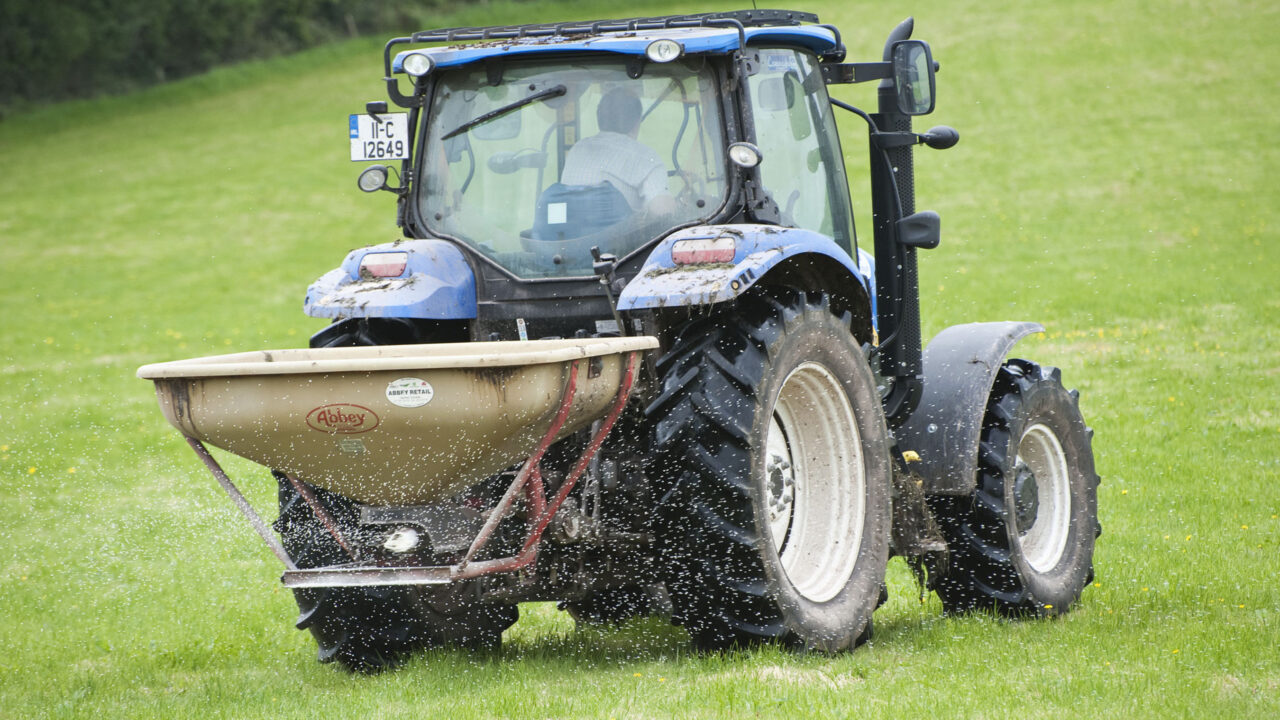Co-ops are being urged to begin “really pushing” feeds with less crude protein, and the spreading of protected urea.
Denis Drennan, the chairperson of the Irish Creamery Milk Suppliers’ Association’s (ICMSA) Farm Services Committee, said: “It’s almost a year ago since I pointed out that a practical engagement with climate change had to begin – with what is within farmers’ powers and capacities – right here, right now.”
He said that last July, he identified a lack of energy in co-ops’ promotion of protected urea, which “has not been rectified”.
“Even at that stage we were concerned about the disconnect between co-ops’ stated position on the need for more climate efficient farming and the reality of their position.
Increased use of lime and protected urea on farms, alongside using meals with lower crude protein contents at grass, are areas we should focus on to lower greenhouse gas emissions on farms.
“Farmers do not consider any of those changes to be controversial, but we need co-op support, particularly at the sales end, to encourage their uptake.”
‘Noisy agreement’ from co-ops
“Last July we stated that we needed the co-ops to actively get behind the changes that we all know must be made. We were hearing then – and we’re still hearing now – lots of noisy agreement from the co-ops,” Drennan claimed.
“But the fact is that at store level, we’re just not seeing the sales staff actively offering the environmentally safer products and giving the farmers the positive choices that they should be offered.
We keep seeing sales staff selling feed with a 16% to 18% crude protein content, when Teagasc is telling us that 10% to 12% is more than adequate when at grass.
“From the farmer point of view, the feeds with lower crude protein, and the protected urea, are more economical as well as being environmentally better – it’s a win-win for us,” the ICMSA farm services chairperson said.
“There is a perception of a conflict of interest among co-ops where, on one hand, they do want to see the lower emissions that will secure the future for sustainable milk production, but on the other hand they want to make it easy and introduce higher-margin sales to farmers.
“The co-ops have to resolve that conflict of interest and we need to see the co-ops really pushing and actively promoting feeds with less crude protein while at grass and the spreading of protected urea. That message has to go down to the sales staff,” Drennan concluded.
